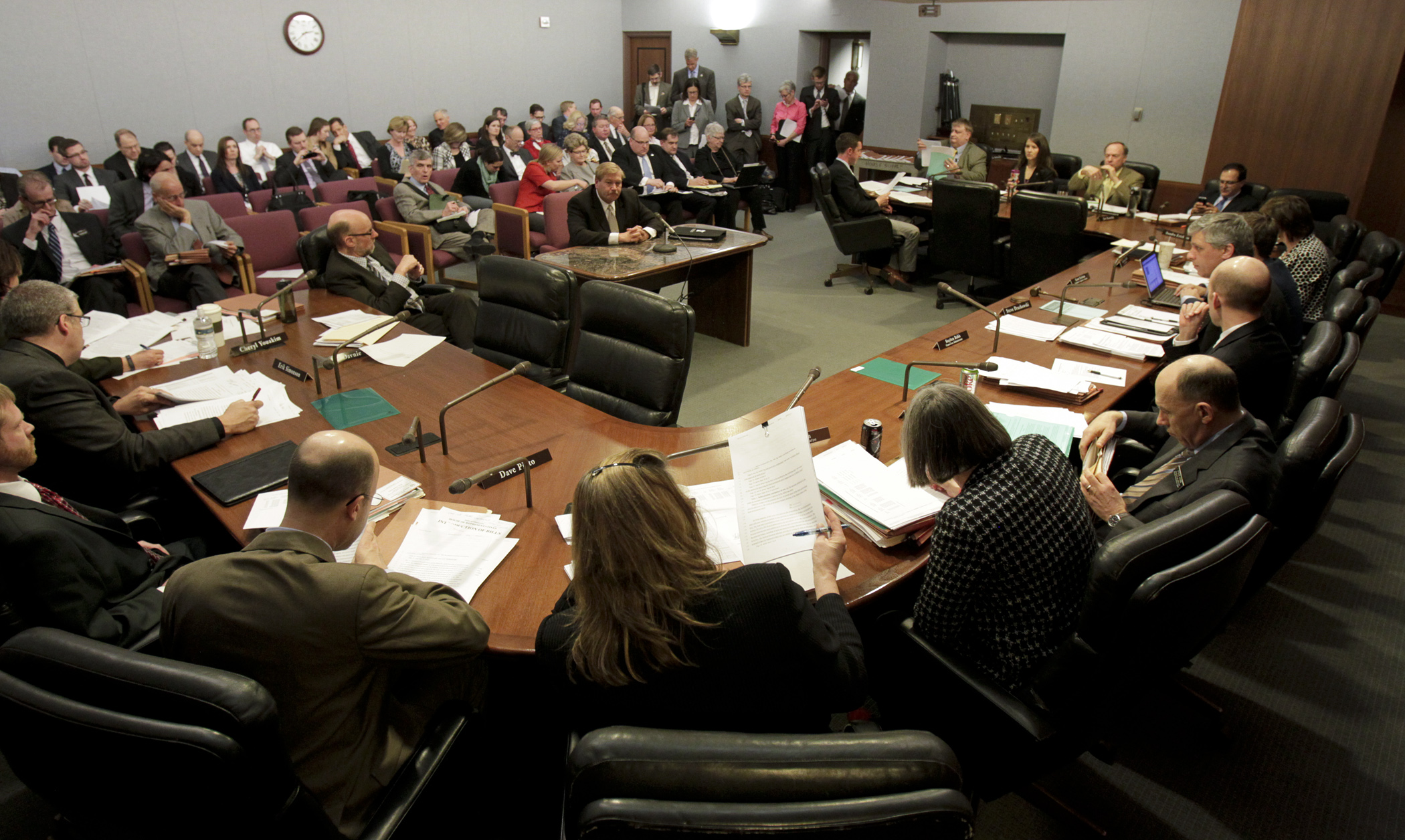Tax relief for commercial and seasonal property proposed

Three themes emerged relating to property taxes that the chair of the House Property Tax and Local Government Finance Division says need to be addressed this session: local government spending, the “suffocating nature of farm taxes” and statewide property taxes on commercial and industrial properties and seasonal and recreational property.
“I submit that we have a lot of good items in the bill — containing protections for the taxpayer to ensure they are looked out for with restrain,” Rep. Steve Drazkowski (R-Mazeppa) said as discussion began Wednesday morning on HF984, the division report he sponsors that is expected to be sent to the House Taxes Committee.
The delete-all amendment to the bill lays out approximately $500 million in property tax relief with the bulk directed at modifications to the statewide general property tax on business and seasonal residential properties. The bill also contains provisions of the Drazkowski-sponsored HF922 that, among other things, would curtail the use of special elections for referendum votes.
Statewide general property tax
Owners of commercial, industrial or seasonal property pay a tax over and above their local property tax that goes directly to the state’s General Fund.
Initiated in 2001, as part of major property tax reform, the tax would be phased out over six years, under the proposal.
For taxes payable in 2016, the first $500,000 of market value of each parcel of commercial-industrial net tax capacity would be exempt from the levy, as well as the first $250,000 of market value of each parcel of non-commercial seasonal recreation property. According to the nonpartisan House Fiscal Analysis Department, this change would mean $446.9 million less to the General Fund over the 2016-17 biennium and nearly $1 billion less in the following biennium.
Other proposed property tax provisions include:
- making permanent the $300,000 property market value tax exclusion for a surviving spouse of a disabled veteran or a service member who dies while in active service;
- allowing agricultural property whose owner lives off-site to qualify for agricultural homestead classification, under certain conditions; and
- defining wine produced by a farm winery as an agricultural product, thereby allowing all property used for producing wine on farm wineries to be classified as agricultural.
Aid and credits
One of the more controversial provisions in the bill would limit local government aid payments to cities of the first class — Minneapolis, St. Paul and Duluth — with the savings going to the General Fund.
Duluth’s Chief Administrative Officer David Montgomery said last session’s LGA reform produced stability and predictability for cities. He said the proposed cut would cause severe staff reductions or a large property tax increase to a city that has a high percentage of nontaxable property. He noted the revitalization that has been going on in the city in recent years. “This would bring it to a screeching halt.”
However, Minneapolis would be able to keep $6.3 million of its local sales tax revenue for general purposes rather than transferring it to the Metropolitan Sports Facilities Authority for 2016-17 only.
Owners of agricultural land said they take a disproportional financial hit when a school building bond is passed and then levied against district property owners. The report would provide a property tax credit on all property classified as agricultural equal to 50 percent of the tax on the property attributable to school district bonded debt levy. This provision would mean $49.4 million less to the General Fund in the 2016-17 biennium.
More transparency for taxpayers
The Property Taxpayer Empowerment Act is included in the bill and would provide that if a county or city with a population of 500 or more increases its property tax levy in any year, the citizens may, through a reverse referendum, petition to vote on the increase for the following year at the general election. The provisions also would dispense with special elections for school bond referendums and many other local issues, and require them to be held on Election Day. It would also require clear notification to taxpayers on various communications if a city or county raised its general property tax levy and is therefore subject to a reverse referendum.
The report would also:
- repeal the library debt service aid to the city of Minneapolis;
- repeal the Aquatic Invasive Species Aid program;
- prohibit spending of public funds on the intercity passenger rail project between Rochester and the Twin Cities; and
- grant special taxing authority to Cottage Grove, Eagan, Wayzata, Duluth, Mankato, North Mankato and Proctor.
What’s in the report?
The following are selected bills that have been incorporated in part or whole into the property tax division report:
Related Articles
Search Session Daily
Advanced Search OptionsPriority Dailies
Ways and Means Committee OKs proposed $512 million supplemental budget on party-line vote
By Mike Cook Meeting more needs or fiscal irresponsibility is one way to sum up the differences among the two parties on a supplemental spending package a year after a $72 billion state budg...
Meeting more needs or fiscal irresponsibility is one way to sum up the differences among the two parties on a supplemental spending package a year after a $72 billion state budg...
Minnesota’s projected budget surplus balloons to $3.7 billion, but fiscal pressure still looms
By Rob Hubbard Just as Minnesota has experienced a warmer winter than usual, so has the state’s budget outlook warmed over the past few months.
On Thursday, Minnesota Management and Budget...
Just as Minnesota has experienced a warmer winter than usual, so has the state’s budget outlook warmed over the past few months.
On Thursday, Minnesota Management and Budget...